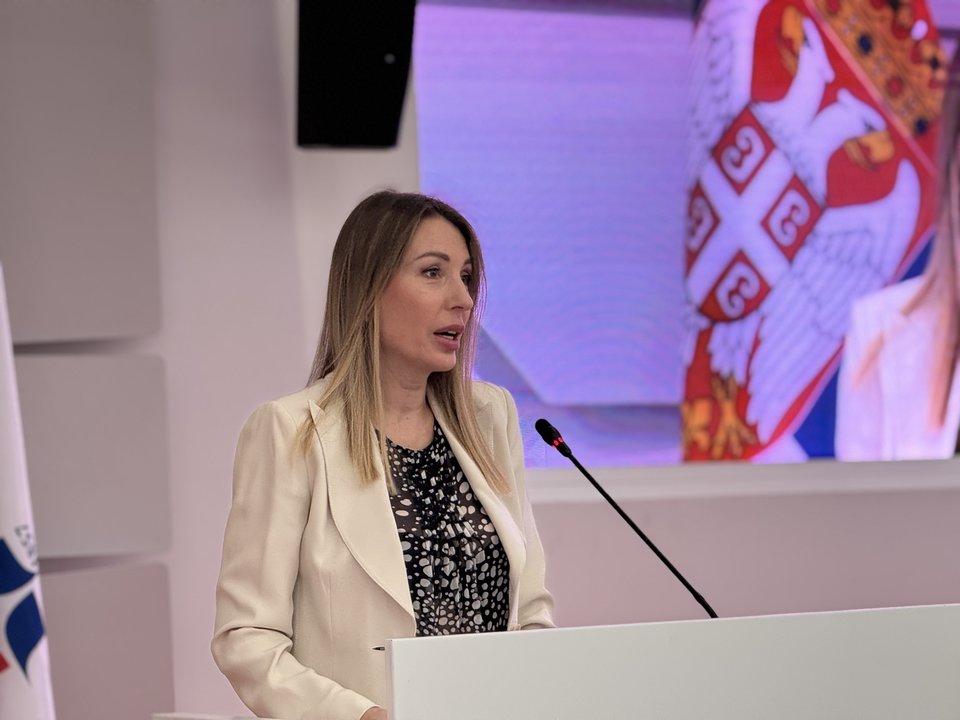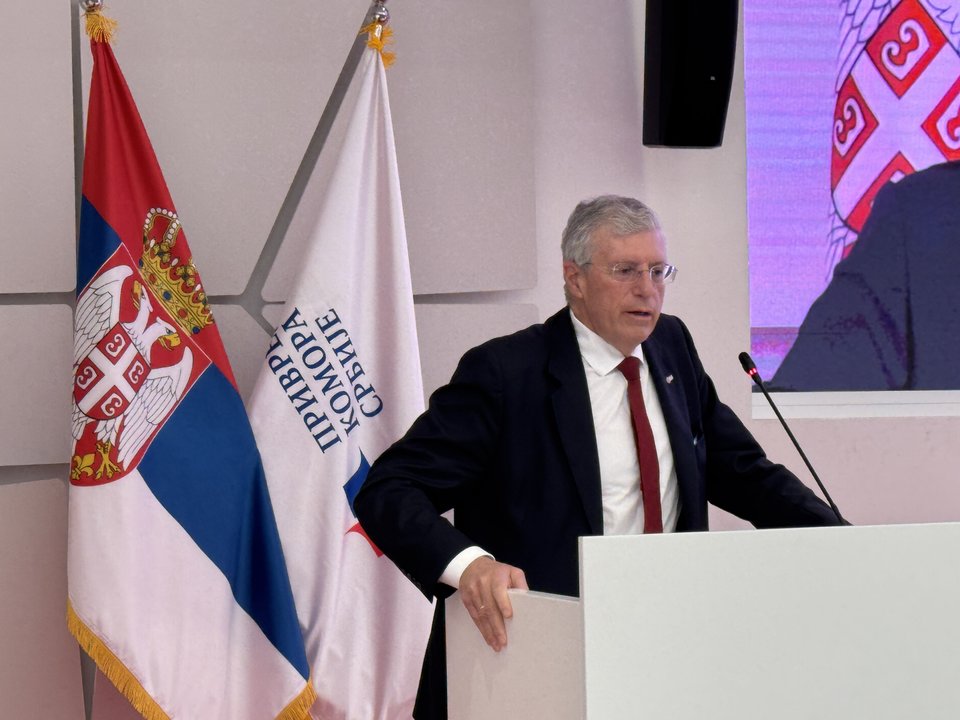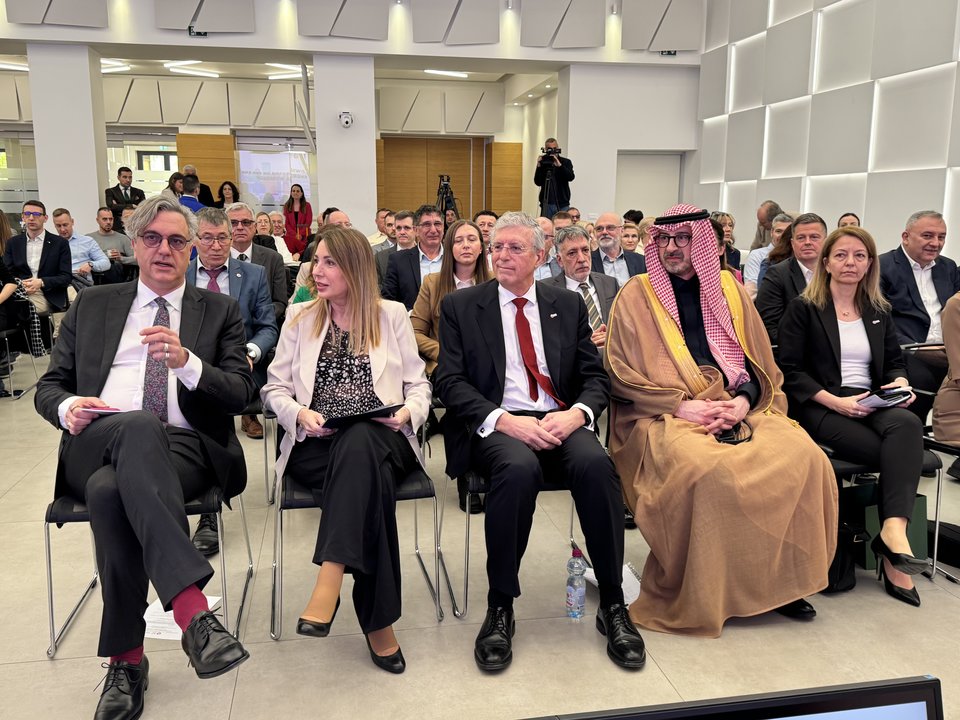Čadež: Knowledge, Cooperation and Innovation as a Response to Energy Challenges
Apr 9, 2025
In today’s world of global instability, where it is extremely difficult to predict future developments, cooperation and joint efforts of all local, regional, and global actors in the exchange of knowledge and information are of essential importance in order to solve the issues of energy supply stability, said Marko Čadež, President of the Chamber of Commerce and Industry of Serbia (CCIS), at the conference of the National Energy Committee of Serbia – WPC Energy, dedicated to the global perspectives of the energy sector.

“We are all aware that we woke up today in a world that is different from what it was just 24 hours ago. We must keep in mind that we are no longer in a position to foresee how and what is going to happen. That’s why we need new tools and skills to approach problem-solving,” stated Čadež.
He emphasized in particular that addressing the challenges of stable energy supply requires cooperation between businesses, universities, institutes, the scientific community, and engineers, in order to overcome the challenges in the energy sector through knowledge, timely information, and innovation.
“There is a need for regional cooperation on these matters, ensuring access to the EU market, including the energy market and available funds, because the world we live in today is a world we no longer recognize – and that is why we must work together,” the CCIS President highlighted.

Dubravka Đedović Handanović, Minister of Mining and Energy, emphasized that Serbia, despite all the challenges it faced during the energy crisis, has managed to maintain its energy stability and continue the development of its energy sector in line with its strategic goals.
“Through strategic documents, and above all the new Energy Development Strategy, we have outlined how we will achieve the decarbonization of the energy sector by 2050, while ensuring sufficient quantities of energy, maintaining stable supply, and strengthening energy security. The price of electricity in Serbia is still among the lowest in Europe, and the progress we have made over the past few years has been recognized by the European Commission and other international partners,” the Minister said. As Minister responsible for the sector, Đedović Handanović also serves as the President of the Assembly of the National Energy Committee of Serbia.

Pedro Miras Salamanca, President of WPC Energy, presented the current geopolitical context and emphasized that fossil fuels accounted for 85% of primary energy production in 1973, while in 2022 that share was 82%.
“Still, 800 million people around the world remain without access to electricity,” Salamanca pointed out.
The workshop titled “Global Perspectives of the Energy Sector”, organized by the National Energy Committee of Serbia – WPC Energy, was held as part of the Executive Committee meeting of the World Petroleum Council (WPC Energy), which took place over the past two days in Belgrade. The National Energy Committee of Serbia has been an active member of WPC Energy for over a decade and serves as the organizer of these important global-level meetings among WPC Energy members.
Today’s event was attended by WPC Energy President Pedro Miras Salamanca and members of the Executive Committee of the organization, who came from Saudi Arabia, the United Kingdom, the United States, China, Kazakhstan, Turkey, Kuwait, Spain, and Canada.

LATEST NEWS
